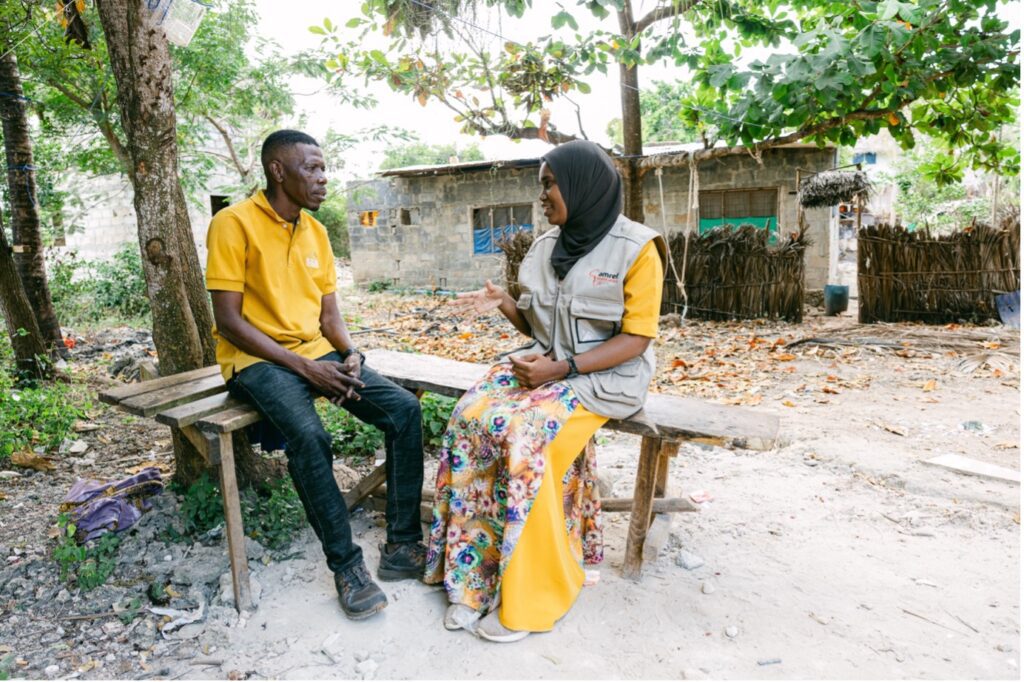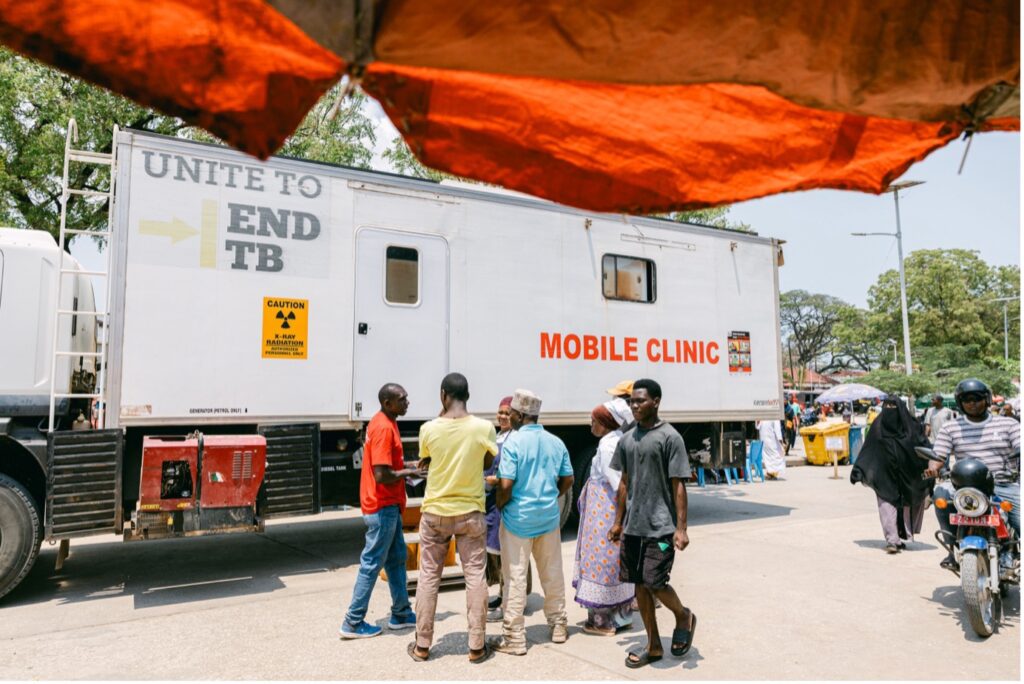At Amref Health Africa, we stand at the forefront of combating tuberculosis (TB) across the continent through innovative strategies and collaborative partnerships. Our commitment to addressing TB is evident in our adoption of a community systems strengthening (CSS) approach, empowering communities, community-based organizations, and health units to promote effective TB interventions, thus increasing demand for services and improving access to them.
A key initiative in our fight against TB is our partnership with The Global Fund to Fight HIV/AIDS, Tuberculosis, and Malaria. This collaboration aims to strengthen health systems in Kenya and Ethiopia, building the capacity of frontline health workers, enhancing community health systems, and improving TB surveillance for informed decision-making. Through this project, we train community health volunteers, support community health units, and conduct awareness events to raise community TB awareness.
In Ethiopia, where TB case detection has been affected by the pandemic, our efforts have been crucial in training health workers, providing advanced TB training, and supporting health facility managers in delivering quality TB services despite challenges posed by conflicts in the region.
“In Kenya, healthcare workers reported a 70% decrease in TB testing, and Ethiopia, emerging data suggest a 66% reduction in TB case detection due to the COVID-19 pandemic,” shares Wossen Gezaghen, Project Manager at Amref Ethiopia.
The Afya Kamilifu project in Tanzania is another notable initiative aimed at ending TB through comprehensive HIV prevention, care, and treatment services, supported by quality improvement and strengthening laboratory services.
Esther Mwangi from Kenyan News highlights, “two in every five Kenyans have tuberculosis (TB) but are unaware and are spreading the disease unknowingly.”
Integrating TB clinics with other health services is essential for comprehensive TB control. Through various projects, such as the Pfizer project in Malawi, we have integrated TB clinics with COVID-19 vaccine dissemination strategies, recognizing the high-risk nature of TB clients for COVID-19.
Furthermore, through projects like the Vaccination Action Network (VAN, we have vaccinated at least 26,265 children with the Bacillus Calmette-Guérin (BCG) immunization across Kenya, Uganda, Tanzania, Malawi, and Zambia, supported by the Rockefeller Foundation and our implementing partners. Our partners, Infectious Diseases Institute (IDI) in Uganda and Self Help Africa (SHA) in Malawi have vaccinated more than 8,000 children with BCG, and Vision Outreach Zambia (VOZ) vaccinated over 3,000 children in their first month of implementation.

TB remains a significant public health concern in Africa, with millions of deaths annually. According to WHO, an estimated 424,000 people died from the disease in the African region (1.267 million globally) in 2022. In Kenya and Ethiopia alone, the impact is profound, emphasizing the urgent need for sustained efforts to combat this infectious disease effectively.
Interesting facts about TB in Africa shed light on the severity of the situation, including the fact that Africa bears 94% of global malaria deaths and more than a quarter of global TB deaths, with Tanzania listed among the 30 countries with the highest burden of TB globally. Additionally, the conflict in Ethiopia has disrupted healthcare services, affecting millions of people in need of critical healthcare.

With our focus on capacity building, sustainable health systems strengthening, laboratory testing, and community involvement, we are making significant strides towards eliminating TB and improving healthcare outcomes in Africa.
“We now have the skills and knowledge to manage patients as well as find more cases in communities, which is vital in eliminating TB,” says Margaret Maureen Atieno, Sub-County TB Coordinator in Siaya County, Kenya.
Together, we can end TB in Africa and ensure a healthier future for all.
The blog is written by David Mitine, Communications Officer, Global Health Security (GHS) Unit, and Lily Achala, Monitoring and Evaluation Officer, GHS.
